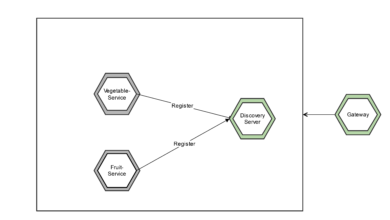How to Protect Your Savings from the Erosive Effects of inflact

Introduction to inflation and its effects on savings
Are your hard-earned savings feeling the squeeze of inflation? You’re not alone. Inflation can silently erode the value of your money over time, leaving you with less purchasing power than before. But fear not! In this blog post, we’ll explore savvy strategies to shield your savings from the erosive effects of inflation. Stay tuned to learn how you can stay one step ahead and protect what’s rightfully yours inflact!
Understanding the concept of purchasing power
Have you ever thought about how inflation impacts your ability to buy goods and services? Understanding the concept of purchasing power is crucial when it comes to safeguarding your savings.
Purchasing power refers to the amount of goods or services that can be bought with a specific amount of money. As inflact rises, the value of money decreases, resulting in a decrease in purchasing power. This means that over time, your savings may not stretch as far as they used to.
To protect your savings from the erosive effects of inflact , it’s important to consider investments that have the potential to outpace inflation and preserve your purchasing power. By diversifying your portfolio with assets like stocks, real estate, and commodities, you can hedge against inflation and maintain the value of your savings in the long run.
Understanding how inflation affects purchasing power is key to making informed financial decisions and ensuring that your hard-earned money retains its value over time.
Tips for protecting your savings from inflation
inflact can erode the value of your savings over time, making it crucial to protect your hard-earned money from its erosive effects. Here are some tips to help you safeguard your savings against inflation.
Consider investing in assets that tend to outpace inflact rates, such as stocks, real estate, and commodities. These investments have the potential to increase in value over time, offering a hedge against rising prices.
Diversification is key when it comes to protecting your savings. By spreading your investments across different asset classes and industries, you can reduce the impact of inflation on your overall portfolio.
Another strategy is to explore inflact -adjusted investment options like Treasury Inflation-Protected Securities (TIPS) and I Bonds. These financial instruments are specifically designed to keep pace with inflation, helping preserve the purchasing power of your savings.
By implementing these tips and staying vigilant about the impact of inflact on your finances, you can better safeguard your savings for the future.
Investing in stocks, real estate, and commodities as a hedge against inflact
When it comes to protecting your savings from the erosive effects of inflation, investing in stocks, real estate, and commodities can be a smart move. Stocks have historically outpaced inflation over the long term by offering potential growth that can help offset rising prices. Real estate is another tangible asset that tends to appreciate in value over time, providing a hedge against inflation.
Commodities like gold and silver are often seen as safe havens during times of economic uncertainty, making them attractive options for preserving purchasing power amidst inflationary pressures. Diversifying your investment portfolio with these assets can help spread risk and enhance overall returns.
While each investment carries its own risks and rewards, building a well-rounded portfolio that includes stocks, real estate, and commodities can serve as a solid defense against the eroding impact of inflation on your savings.
The role of diversification in protecting savings
Diversification is like a shield for your savings in the battle against inflation. By spreading your investments across different asset classes, you reduce the risk of losing everything due to fluctuations in one market.
Imagine if all your money was tied up in just one type of investment and that sector took a hit from inflation – it could spell disaster for your savings. But with diversification, you have a safety net. If one area underperforms, others may thrive, balancing out the overall impact on your portfolio.
Stocks, real estate, bonds – each plays a unique role in safeguarding your wealth. By allocating your funds strategically among these options, you create a robust defense mechanism against the erosive effects of inflact.
Remember: don’t put all your eggs in one basket when it comes to protecting your hard-earned money!

Inflation-adjusted investment options like TIPS and I Bonds
Are you looking for ways to safeguard your savings against the erosive effects of inflation? Consider inflact adjusted investment options like Treasury Inflation-Protected Securities (TIPS) and I Bonds.
TIPS are government-backed bonds designed to protect investors from inflation. These securities adjust their principal value based on changes in the Consumer Price Index, ensuring that your investment keeps pace with inflation.
I Bonds, on the other hand, are savings bonds issued by the U.
S. Treasury that offer a combination of inflact interest rates and inflation adjustments. They provide a reliable way to preserve your purchasing power over time.
By incorporating TIPS and I Bonds into your investment portfolio, you can mitigate the impact of rising prices on your savings. These instruments offer a valuable hedge against inflation while providing stability and security for your financial future.
Conclusion
Safeguarding your savings from the erosive effects of inflact requires a proactive approach. By understanding how inflation impacts purchasing power and implementing strategies like investing in stocks, real estate, commodities, as well as diversifying your portfolio with inflation-adjusted investments such as TIPS and I Bonds, you can better protect your hard-earned money. Remember that staying informed about economic trends and seeking professional financial advice when needed are crucial steps towards maintaining the value of your savings over time. By being diligent and strategic in your financial planning efforts, you can navigate the challenges presented by inflation and secure a more stable financial future for yourself.




